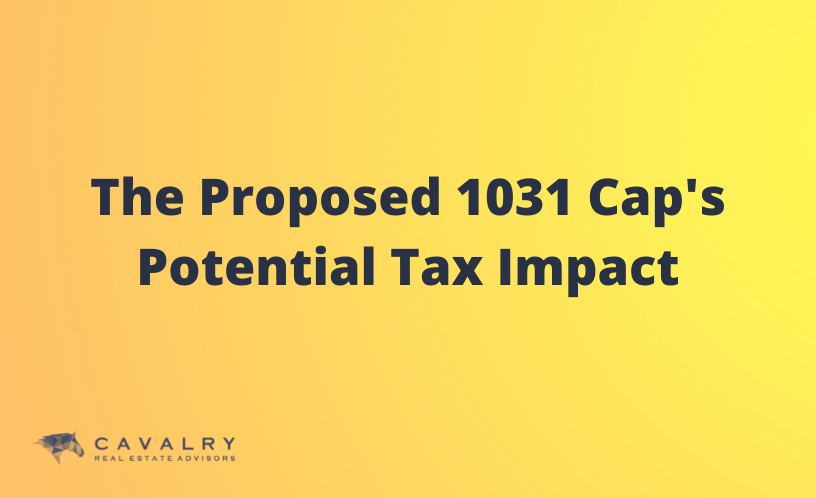What the Proposed 1031 Cap May Mean for Your Tax Picture

One of the most useful classes that I took during my time as an MBA student at American University was Business Law. Things I learned in that class are as relevant then as they are now, and I can attribute some early successes in my own real estate career to that curriculum.
Interestingly, the entire class was presented and taught within the context of real estate. Partly because of the track I chose in my MBA program (e.g., Real Estate and Urban Development) but mainly because the professor teaching that class had spent a majority of his life building a career as a real estate investor. He was sharp, thoughtful, and pragmatic in his approach. I can clearly recall one of his more profound statements that still resonates with me today: “Real estate is the government’s gift to the taxpayer.”
At the time this was one of the more profound statements I had ever heard from someone as it relates to real estate and its role in the US tax system. It’s also a statement that sent me on a reading binge to discover the complex relationship between the IRS and the real estate community. One of those many “tax breaks” and infamous provisions within the US tax code that have been afforded to owners of real estate is the 1031 Exchange (aka Starker Exchange).
This provision allows sellers of real estate to defer capital gains tax by investing the proceeds in like-kind property if identified and transacted within a certain time frame. This provision became immensely popular and some would argue has led to significantly greater transaction volume and value growth amongst investment real estate since its inception.
The Biden administration is proposing to cap the amount of gains that can be deferred. Many before him have tried and failed. So it is yet to be seen whether or not this will ever come to fruition.
Regardless, if there was ever a current political environment in the last 20 years that would seem ripe for such a dramatic change to the tax code it would be now. The repercussions of this change are debatable but one thing is for sure: it would change the calculus and volume of sales taking place.
My own opinion is that it will negatively impact values as many investors using the 1031 statute are willing to pay slightly more on the “upleg” of the 1031 to secure a replacement property and avoid the gains. This has consistently led to increases in the value of investment real estate and has been accretive over decades.
What does this have to do with property taxes you might ask? Generally speaking, any time there are overall declines in value in the real estate market, it presents appeal opportunities. But from a macro perspective, when an entire real estate market (residential and commercial investment properties) become susceptible to a deterioration in value, it erodes the overall tax base in local jurisdictions. When that happens, local governments have two options: cut costs or raise tax rates. In most cases the latter wins out.
As property tax consultants, we can always fight values, but tax rates require efforts at the voting booth. So, keep an eye out for this potentially significant change at the federal level, as it may impact your property tax rates downstream.
BACK TO ARTICLES